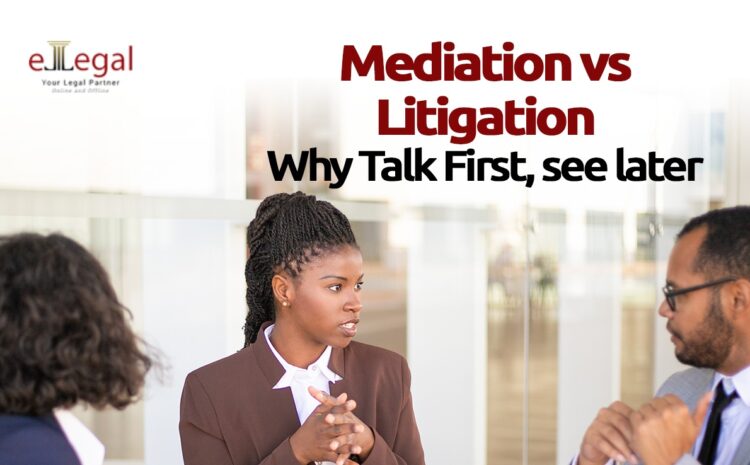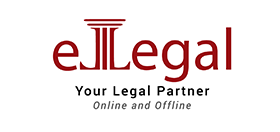
Confronting a legal dispute often triggers an instinctive response: “I have a strong case; I’ll sue.” The allure of a decisive courtroom victory is powerful, promising vindication and enforceable justice. However, this instinct may overlook a strategically superior path: mediation.
Statistics consistently demonstrate mediation’s efficacy, with approximately 70-80% of mediated cases settling, often where prior negotiations failed. High-profile examples, like the complex patent dispute between Apple and Samsung, settled via mediation in 2012, underscore its viability even in fiercely contested matters. This post explores the compelling advantages of mediation, particularly when your legal position is strong, and provides a clear comparative analysis with litigation.
Why Pursue Mediation, Especially with a Strong Case?
A strong legal position isn’t a reason to avoid mediation; it’s often the ideal leverage to pursue a favorable and efficient resolution. Here’s why:
-
Cost-Effectiveness and Time Efficiency
Litigation Reality: Costs escalate rapidly, court fees, attorney hours (discovery, motions, trial prep, trial), expert witnesses, deposition costs, and administrative expenses. Litigation is inherently protracted, often spanning years due to crowded dockets, procedural complexities (pleadings, discovery, pre-trial motions, trial, potential appeals), and strategic delays.
Mediation Advantage: Mediation is typically concluded within hours to days, rarely exceeding a few sessions. Costs are significantly lower, involving primarily mediator fees and preparation time. The collaborative focus streamlines the process, avoiding the procedural morass of litigation. Redirecting resources saved towards core business or personal priorities is a tangible benefit.
-
Enforceability
Litigation Reality: A court judgment is merely step one. Enforcement can be arduous, expensive, and uncertain. Debtors may lack assets, hide assets, declare bankruptcy, or simply refuse to pay, necessitating garnishment proceedings, asset liens, or debtor exams. A favorable judgment does not guarantee payment.
Mediation Advantage: Settlement agreements reached through mediation are voluntarily entered into by both parties. This mutual buy-in dramatically increases compliance rates. Agreements are structured with clear, mutually agreed-upon payment terms, timelines, and often built-in safeguards, making enforcement (if rarely needed) procedurally simpler than a contested judgment collection.
-
Reduced Stress and Emotional Toll
Litigation Reality: The adversarial system is inherently combative and stressful. Depositions, cross-examination, public airing of disputes, and the uncertainty of trial take a significant emotional and psychological toll on all involved.
Mediation Advantage: Mediation fosters a collaborative, solution-oriented environment. A skilled mediator manages tension, facilitates constructive dialogue (using techniques like private caucuses when joint discussions stall), and focuses on mutual interests. This significantly reduces animosity and emotional strain, leading to a more dignified and less traumatic resolution process.
-
Preserving Relationships
Litigation Reality: Litigation is relationship-toxic. Public accusations, scorched-earth tactics, and the win/lose outcome often permanently damage personal, familial, or business relationships. Even “victory” can leave a legacy of resentment.
Mediation Advantage: By focusing on underlying interests and mutual problem-solving, mediation helps preserve and sometimes even repair relationships. This is crucial for:
- Divorcing Parents: Enabling cooperative co-parenting and minimizing damage to children. With our family mediation service in the UK, we can assist with a seamless mediation process.
- Business Partners/Colleagues: Allowing continued commercial relationships or amicable separations.
- Neighbors or Community Members: Maintaining long-term coexistence.
- Vendors/Customers: Preserving valuable commercial networks. Mediation addresses the human element, fostering understanding and closure.
-
Confidentiality and Privacy
Litigation Reality: Court filings and proceedings are generally public records. Sensitive financial data, trade secrets, personal conflicts, and damaging allegations become accessible, potentially harming reputations, investor confidence, customer trust, and market position.
Mediation Advantage: Mediation is strictly private and confidential. Discussions, documents shared within the process, and the final agreement (unless incorporated into a public court order) remain confidential. Parties sign agreements reinforcing this. This “safe space” encourages open disclosure and protects reputational capital, particularly vital for businesses, professionals, and individuals in sensitive positions.
-
Control Over the Outcome
Litigation Reality: Parties surrender decision-making power to a judge or jury. Outcomes are binary (win/lose) and constrained by legal precedents and procedural rules. Creative or nuanced solutions are impossible. The result may be legally “correct,” but practically unsatisfactory for both sides.
Mediation Advantage: Parties retain complete control over the process and the outcome. They are free to walk away at any time. The focus shifts from legal rights to underlying interests and needs. This enables highly customized, creative solutions that a court could never order unique payment plans, specific performance agreements, apologies, revised business terms, or non-monetary concessions. The adage, “An unfair settlement is better than a fair judgment,” speaks to the value of a controlled, certain resolution over the risk and rigidity of court.
-
Higher Compliance Rates
Litigation Reality: Imposed judgments often breed resentment and non-compliance, leading to further enforcement battles.
Mediation Advantage: Because parties actively participate in crafting the agreement, they have a vested interest in its success. The process fosters procedural fairness and mutual respect, increasing the likelihood of voluntary and lasting compliance.
-
Conclusion
The choice between litigation and mediation is not merely procedural; it’s profoundly strategic and human. While litigation remains a necessary tool for certain intractable disputes, mediation offers a powerful, often superior alternative, especially when your legal position is strong.
Leveraging strength in mediation allows you to efficiently secure a favorable, enforceable resolution while avoiding the exorbitant costs, delays, public exposure, relationship carnage, and collection risks inherent in litigation.
The 70-80% success rate of mediation is not a statistic to dismiss; it represents a high probability of achieving closure swiftly and on terms you help shape. Mediation transforms conflict from a destructive battle into an opportunity for controlled, constructive problem-solving.
Before embarking on the arduous path of litigation, seriously consider mediation. Engage an experienced, qualified mediator. Approach the process with preparation and openness. If mediation does not yield a resolution, litigation remains available. However, in the vast majority of cases, mediation empowers parties to “talk first,” achieving outcomes that are not just legally sound, but also practical, durable, and humane truly allowing all parties to “sue later” only as a last resort, having first explored the smarter, more constructive path.
We offer expert dispute resolution services in the UK designed to guide parties through this strategic mediation process. Whether you face a complex commercial disagreement, a sensitive family matter, or a contractual deadlock, our mediators provide the structured, confidential environment needed to craft solutions that courts cannot deliver.
Before escalating to litigation, explore our free mediation services. It’s not just an alternative, it’s often the optimal path to closure. Contact us today to discuss how our tailored dispute resolution services can help you resolve conflicts with clarity, control, and certainty.





